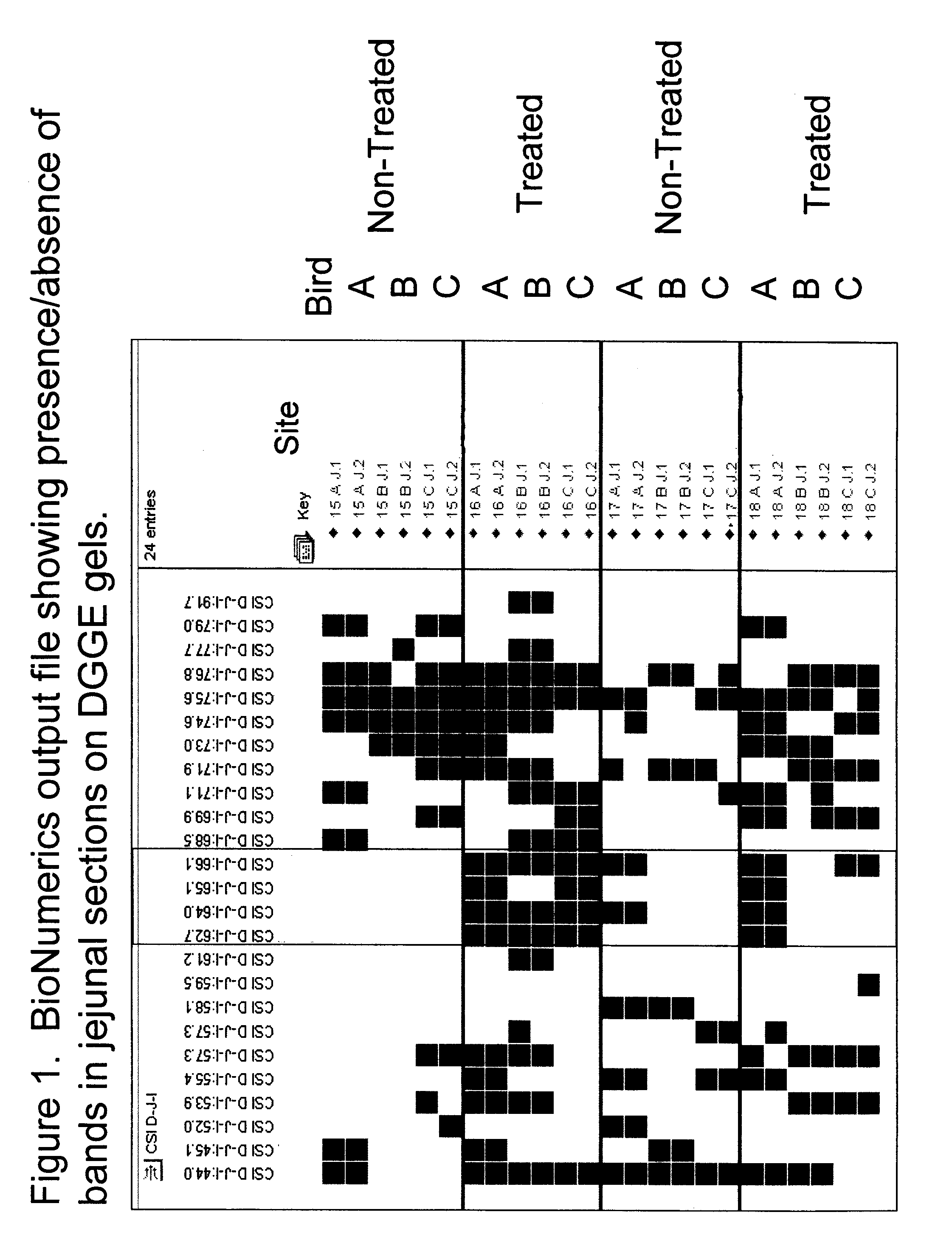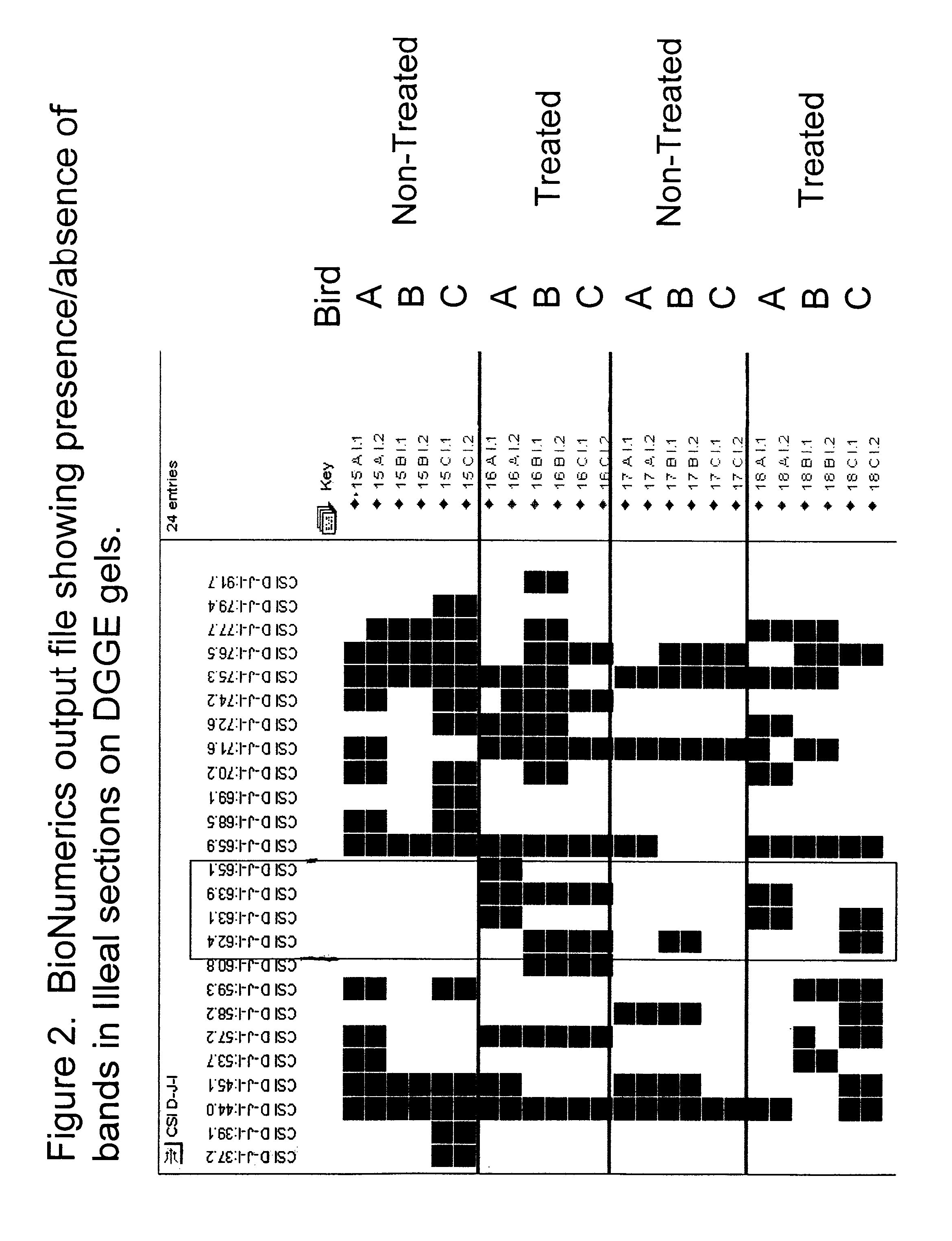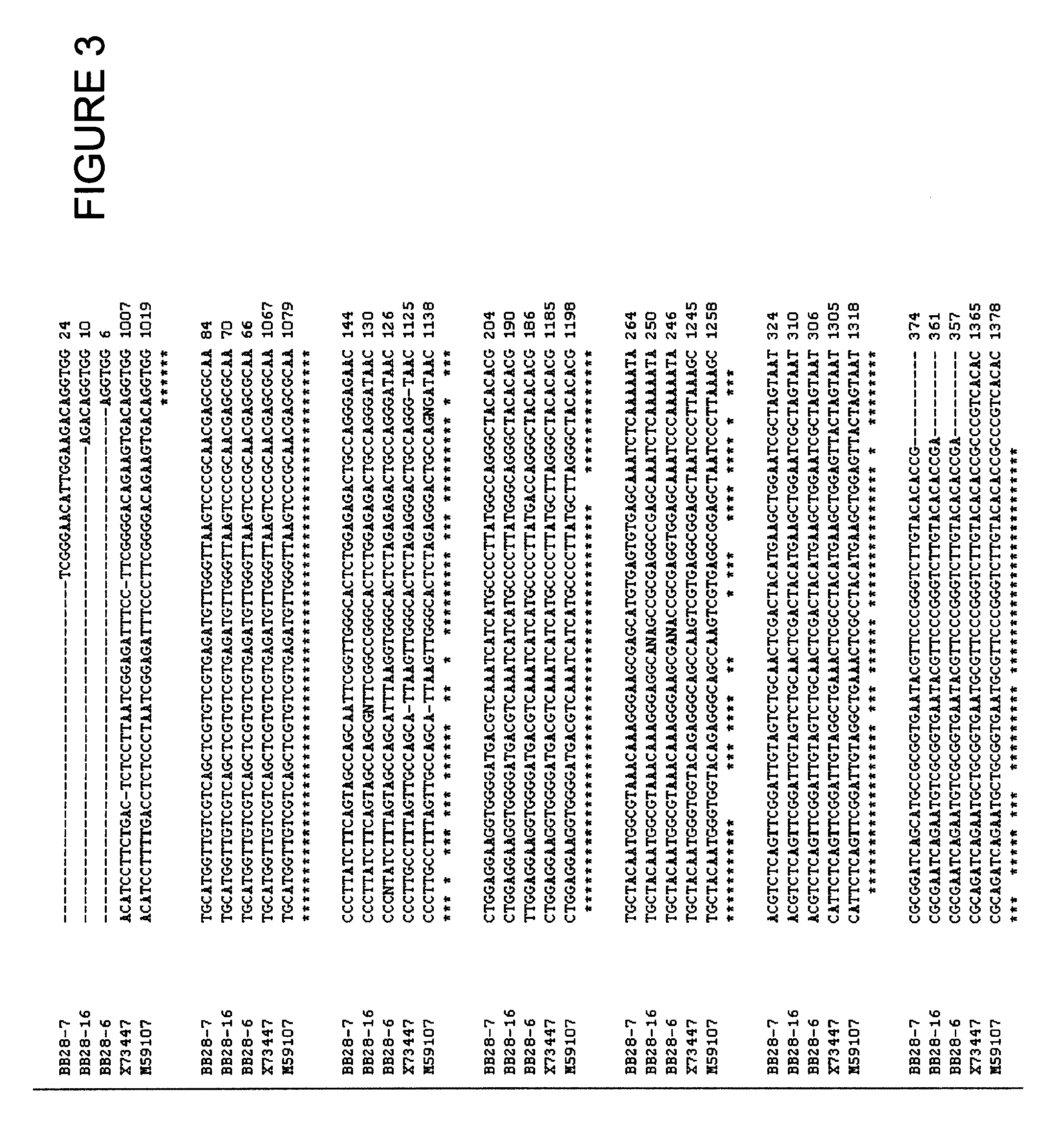Microorganisms and methods for treating poultry
a technology of microorganisms and poultry, applied in the field of microorganisms and methods for treating poultry, can solve the problems of increased turkey production cost, decreased performance, increased mortality, etc., and achieve the effect of increasing low g+
- Summary
- Abstract
- Description
- Claims
- Application Information
AI Technical Summary
Benefits of technology
Problems solved by technology
Method used
Image
Examples
example 1
[0060]Design. Gastrointestinal samples from finishing phase turkeys within a production system were sampled to examine pathogen populations and microbial diversity.
[0061]Within the turkeys sampled were two treatments: an experimental group that was treated with a CSI-Bacillus DFM and a control, no treatment group. The Bacillus CSI consisted of strains 22CP1, 2084 and BS 27, with each strain consisting of one-third the total count of 7.5×104 CFU / g of feed. Three birds from each of four houses (2 treated, 2 control) were sampled. Bird ages for treated houses were 13 weeks and 6 weeks, and the controls birds were 18 weeks and 14 weeks.
[0062]Bird / intestinal collection. Turkey poults were sacrificed from each of the 25 sampling houses. The birds ranged in age from 23 to 32 days. Intestinal tracts were removed, tied off at the esophageal and cecal ends, and immediately placed in sterile whirl-pak bags with sterile saline covering the entire tract. Tract samples were shipped overnight to A...
example 2
[0072]Utilization of strain 2084 in the Diets of Male Broiler Chickens.
[0073]Introduction. A battery trial was conducted to determine the effects of strain 2084, a Bacillus based direct-fed microbial feed additive, on the performance of male broilers grown to 28 days of age.
[0074]Materials and Methods. A starter and grower basal diet utilizing corn and soybean meal as the primary ingredients were formulated to contain 105% of the 1994 National Research Councils recommended nutrient requirement for male broilers. Diet compositions and analyzed nutrient content are shown in Tables 1 and 2. The test ingredient was then added to each of these diets and blended with BMD-50 at either 0 or 50 grams / ton drug activity. The levels of Bacillus delivered per gram of feed for the 0.25% and 0.5% inclusion rates were 3.75×104 and 7.5×104 colony forming units. Dietary treatments were arranged in a 3×2 factorial to give a total of 6 treatments. All diets were mixed for approximately five minutes and...
example 3
[0083]Bacillus subtilis Strain 2084 Broiler Pen Research Trial.
[0084]Introduction:
[0085]In a trial conducted previously with male broiler chicks reared in battery cages to 28 d, supplementation with strain 2084 resulted in improved feed conversion compared to birds not provided strain 2084, and compared to those provided antibiotic (BMD) supplementation. The current study was conducted to further evaluate the effects of strain 2084 on the performance of broilers to market age.
[0086]Materials and Methods: A total of 500 male broiler chicks (Ross×Cobb 500) were divided into 10 pens and fed one of two dietary treatments (5 pens / treatment) in a completely randomized design in a 48 d study. Dietary treatments included: a control—typical commercial diet and a treatment—control diet supplemented with strain 2084 at an inclusion rate of 7.5×104 CFU / g.
[0087]Diets were fed in four phases: a starter diet from d 0 to 14, a finisher diet from d 15 to 32, a withdrawal diet from d 33 to 43, and a ...
PUM
| Property | Measurement | Unit |
|---|---|---|
| constant temperature | aaaaa | aaaaa |
| volume | aaaaa | aaaaa |
| temperature | aaaaa | aaaaa |
Abstract
Description
Claims
Application Information
 Login to View More
Login to View More - R&D
- Intellectual Property
- Life Sciences
- Materials
- Tech Scout
- Unparalleled Data Quality
- Higher Quality Content
- 60% Fewer Hallucinations
Browse by: Latest US Patents, China's latest patents, Technical Efficacy Thesaurus, Application Domain, Technology Topic, Popular Technical Reports.
© 2025 PatSnap. All rights reserved.Legal|Privacy policy|Modern Slavery Act Transparency Statement|Sitemap|About US| Contact US: help@patsnap.com



